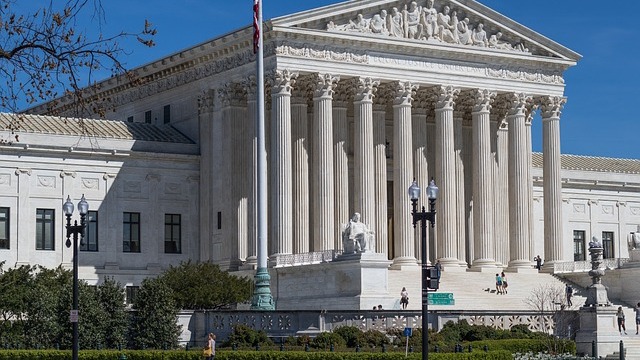
The Supreme Court's Role in Shaping Birthright Citizenship
As the United States grapples with ongoing debates surrounding immigration and citizenship, the Supreme Court's recent deliberations over birthright citizenship have taken center stage. Recently, justices heard arguments regarding a case that could potentially pave the way for President Trump's executive order aimed at ending birthright citizenship. However, it's essential to note that this case does not directly challenge the constitutionality of the president's order; instead, it scrutinizes the judicial authority that has been blocking its implementation.
Understanding Birthright Citizenship
In the United States, birthright citizenship has its roots in the 14th Amendment ratified in 1868, which grants citizenship to "all persons born or naturalized in the United States, and subject to the jurisdiction thereof." This principle has long been a point of pride for many Americans, symbolizing equality and inclusivity. However, as immigration and demographic shifts occur, opinions about this foundational right have polarized.
A Historical Perspective: Birthright Citizenship Through the Ages
Historically, birthright citizenship marked a significant shift in how nations viewed citizenship and belonging. For decades, U.S. policy has been clear; anyone born on American soil is a citizen. Yet, as the Trump administration took office, the question of whether this principle should remain unchallenged was brought to light. It’s vital to examine how changes in political leadership affect longstanding constitutional commitments.
Wide-Ranging Implications of the Court's Decision
The outcome of this case extends beyond the immediate question of birthright citizenship. Challenging this established right could set a legal precedent for future immigration policies, redefining what it means to be a citizen in America. If the Supreme Court allows the executive order to proceed, this could significantly impact children of immigrants and their rights. Critics argue it could lead to a fragmented society, where citizenship is contingent on the status of one's parents.
Public Sentiment and Its Role
Public opinion on birthright citizenship varies significantly. Polls indicate a divided perspective among the American population. Some assert that limiting birthright citizenship is a necessary move to combat illegal immigration, while others defend it as a crucial aspect of American identity and values. This split mirrors broader discussions on immigration reform, highlighting the emotional and political stakes involved.
Diverse Perspectives on the Path Forward
As with many national debates, there are compelling arguments on both sides regarding birthright citizenship. Proponents of maintaining the status quo argue that it fosters an inclusive society, encouraging diversity, while opponents cite concerns over uncontrolled immigration and the alleged burden it places on resources and social services. Understanding these perspectives is essential for a comprehensive view of the ongoing debate.
The Future of Birthright Citizenship: What Lies Ahead?
Judicial decisions surrounding the birthright citizenship case will likely influence not only the legal landscape but the socio-cultural fabric of the nation as well. Should the Supreme Court side with the Trump administration, we might see an extensive overhaul of how citizenship is granted and recognized. This possibility raises questions about future immigration policies and their implications for American society as a whole.
Actionable Insights: Engaging in the Conversation
For those concerned about the impact of this case, staying informed and actively participating in discussions about immigration policies is crucial. Advocacy groups and legal organizations will play a pivotal role in shaping public discourse and addressing potential legal ramifications. Engaging with local representatives and voicing your opinion can contribute to the broader conversation on citizenship in America.
As we monitor the outcome of this case, it will be essential to reflect on the values we uphold as a nation regarding citizenship and belonging. Challenges to birthright citizenship not only provoke legal scrutiny but also encourage a reevaluation of our national identity.
It is vital to stay engaged with national news headlines and keep abreast of developments surrounding this significant issue. Your participation in this dialogue matters.
 Add Element
Add Element  Add Row
Add Row 



 Add Row
Add Row  Add
Add 


Write A Comment